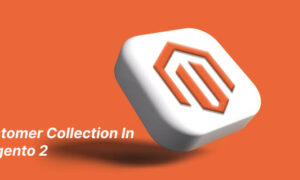7 Ways to Monetize Your WordPress Blog
Blogging can be a time-consuming and sometimes costly endeavor, even when using a free platform like WordPress. In addition to the effort required to create high-quality content, you may be responsible for hosting fees, domain renewal costs, security certifications, and any expenses associated with premium plugins. In this, you will learn about the most effective ways to monetize your WordPress blog.
As a result, many bloggers may wonder if they can earn income from their efforts. While there is no guaranteed path to riches, there are several tried-and-true strategies that successful bloggers use to monetize their blogs.
In this post, you will learn about the seven most effective ways to monetize your WordPress blog. We will explore the pros and cons of each approach, so you can decide which method is best for your content, schedule, and audience.
Place display ads
One way to monetize your WordPress blog is by placing display ads on your website. This can be done through various ad networks, such as Google AdSense, Media.net, or Propeller Ads. To get started, sign up for an account with one of these networks and create ad units to place on your website. Be sure to place the ads in strategic locations, such as in the header, sidebar, or after the post content, to maximize visibility and click-through rates.
An important aspect of placing display ads on your WordPress blog is choosing the right ad sizes. Common ad sizes include 300×250, 728×90, and 160×600. It’s important to choose ad sizes that fit well with the design of your website and are not intrusive to the user experience.
It’s also important to disclose that you’re using display ads and ad networks on your website. This is required by some ad networks and can help you avoid any legal issues. You can disclose this information in your privacy policy or by using a plugin to display an “Ads by” notice on your website.
Additionally, you can also increase your revenue by using native ads, which are ads that are designed to blend seamlessly with the content on your website. They are often more engaging and less intrusive than traditional display ads and therefore can increase the click-through rate and revenue.
Finally, you should also consider using ad blockers on your website, as it will help to reduce the number of users who are blocking ads, and thus increase the revenue. You can use ad blockers that are compatible with the most popular browsers, such as AdBlock Plus, uBlock Origin, or Ghostery.
Affiliate Marketing
Are you looking for a way to monetize your WordPress blog? One great option to consider is affiliate marketing. Unlike traditional advertisements, affiliate marketing allows you to promote third-party products in your blog content and earn a commission for any sales made through your unique affiliate links.
According to Business Insider, 15% of digital marketing revenue comes from affiliate programs, making it a profitable opportunity for bloggers. Amazon Associates is the largest player in the space, but there are also alternative affiliate networks and companies that offer their own affiliate programs.
Get started with affiliate marketing on WordPress, it’s important to choose products that you genuinely enjoy and benefit from. This will help your readers trust your recommendations. Additionally, make sure to follow the rules for your affiliate program(s) and always disclose when your links are affiliate links.
To maximize your earning potential, it’s also important to build out your readership with excellent content before placing affiliate links. And remember, you don’t have to change your content to suit your monetization strategy – there’s likely an affiliate marketing program within your blogging topic.
So, if you’re looking to monetize your WordPress blog, consider the opportunity of affiliate marketing. With a little bit of research and strategy, you can turn your passion into profit.
Sponsored Posts
To monetize your blog through sponsored posts, you will need to establish relationships with brands or companies that are interested in promoting their products or services on your blog. This is done by reaching out to them directly or by joining an influencer network that connects bloggers with brands.
Once you have established a relationship with a brand or company, they will provide you with the content and guidelines for the sponsored post. This can include a written post, a video, or a product review. You will then need to publish the sponsored post on your blog and promote it through your social media channels.
Clearly label all sponsored posts to avoid misleading readers. Follow Federal Trade Commission guidelines for sponsored content to avoid legal issues
Sponsored posts can be a great way to monetize your blog, but it’s important to be selective about the brands and products that you promote. It’s essential to ensure that the products or services align with your blog’s niche and that your readers will find value in the sponsored post.
Disclose the details of the sponsored post in your blog’s privacy policy to inform readers of your monetization strategy and ensure transparency in sponsored posts.
Sell Online Courses
Another way for bloggers to monetize their blogs is by selling online courses. To create an online course, you will need to plan and organize your content, create the course materials, and determine a price for your course. You can use platforms like Teachable, Udemy, or LearnDash to host your course and handle payments.
Once you have created your course, you can promote it on your blog by creating a landing page, creating blog posts and social media posts that highlight the course’s content and benefits, and including a call-to-action (CTA) to encourage readers to sign up.
It’s important to note that creating an online course requires a significant amount of time and effort, but it can be a great way to monetize your blog if you have specific expertise in a certain field, and your readers are looking for more in-depth information on that topic.
Additionally, you can also create and sell other types of digital products, such as e-books, webinars, or tutorials. This can also help to diversify your income streams and allow you to monetize your blog in different ways.
It’s essential to ensure that the course you’re creating is of high quality and provides value to your readers. Also, it’s important to have a clear understanding of your target audience, to ensure that your course caters to their needs and interests.
Sponsored Reviews
Sponsored reviews are a great way to monetize your WordPress blog by earning money for writing about products or services that are relevant to your audience. Here are a few steps:
- Identify relevant companies or brands in your niche. For example, if your blog is about parenting, you could reach out to companies that sell baby products.
- Create a media kit that includes information about your blog, your audience, and your traffic statistics. This will help companies understand the value of working with you.
- Reach out to companies and offer your services as a sponsored review blogger. You can use email, social media, or even cold-call them to introduce yourself and your blog.
- Once you have a sponsored review opportunity, write a detailed and honest review of the product or service you are covering. Be sure to include photos and links to the product in your post.
- Share your sponsored review on your blog and social media channels to reach a wider audience.
By following these steps, you can start earning money through sponsored reviews on your WordPress blog. Remember to disclose any sponsored content on your blog to be transparent with your readers.
Offer membership
A membership website is a great way to monetize your online content and provide exclusive access to premium resources for your followers. With a membership model, you can offer recurring access to gated content, such as articles, videos, and forums, in exchange for a monthly or annual fee. This method of monetization is more reliable than one-time paid content, as it provides a steady stream of revenue. However, creating a membership website can be a lot of work, as you need to build a large following, create high-quality content, and manage the technical aspects of the site.
One alternative to building a membership website from scratch is to use a platform like Patreon. Patreon is a popular platform that allows fans to sponsor creators on a monthly basis in exchange for exclusive membership content. You can set up different membership tiers with increasing perks for each level, and place calls to action on your blog asking for support. You get a percentage fee from Patreon for handling content gating, membership tiers, and payments. This is a lightweight and cost-effective alternative to creating a membership website from scratch.
Ask for donation
If you would like to monetize your WordPress blog by asking for donations, you can use a plugin such as “Donations Made Easy” or “PayPal Donations.” These plugins allow you to add a donation button to your blog, which visitors can click on to make a donation to you via PayPal. Additionally, you could use a plugin like “Give” which is a complete donation management plugin for WordPress, it allows you to create different forms for donation, set goals, and more.
Another option would be to use a service like Patreon, which allows people to make recurring donations to creators. You can create a Patreon account and then link to it on your blog, asking visitors to support you.
It’s also worth noting that, if you’re expecting a large number of donations, you may want to consider setting up a separate bank account for your donations and keeping accurate records of your income and expenses.
You can monetize your WordPress blog in the following ways mentioned above. Here you can see more related Blog posts.


